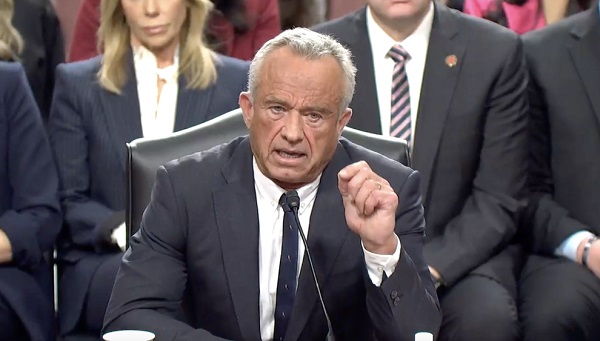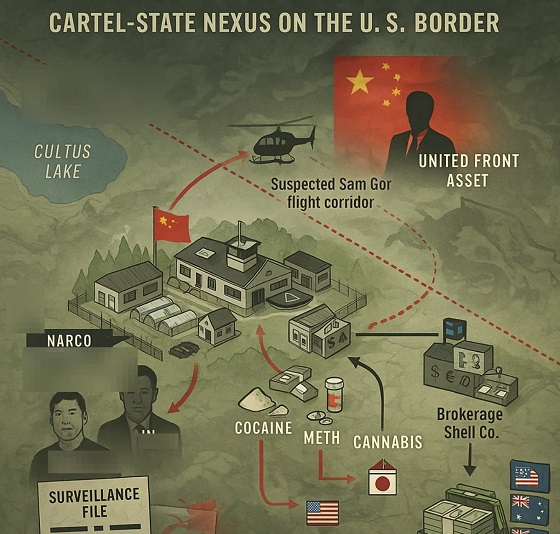Daily Caller
Trump’s ‘Drill, Baby, Drill’ Agenda Will Likely Take On An Entirely New Shape


From the Daily Caller News Foundation
By David Blackmon
During his campaign and since taking office, President Donald Trump often repeated his desire to bring back the same “drill, baby, drill” oil and gas agenda that characterized his first term in office.
But that term began 8 long years ago and much has changed in the domestic oil business since then. Current market realities are likely to mitigate the industry’s response to Trump’s easing of the Biden administration’s efforts to restrict its activities.
Trump’s second term begins as the upstream segment of the industry has enjoyed three years of strong profitability and overall production growth by employing a strategy of capital discipline, technology deployment and the capture of economies of scale in the nation’s big shale play areas. Companies like, say, ExxonMobil and Oxy and their peers are unlikely to respond to the easing of government regulations by discarding these strategies that have brought such financial success in favor of moving into a new drilling boom.
This bias in favor of maintenance of the status quo is especially likely given that the big shale plays in the Permian Basin, Eagle Ford Shale, Bakken Shale, Haynesville and the Marcellus/Utica region have all advanced into the long-term development phases of the natural life cycle typical of every oil and gas resource play over the past 175 years. Absent the discovery of major new shale or other types of oil-or-natural gas-bearing formations, a new drilling boom seems quite unlikely under any circumstances.
One market factor that could result in a somewhat higher active rig count would be a sudden rise in crude oil prices, if it appears likely to last for a long period of time. Companies like Exxon, Chevron, Oxy and Diamondback Energy certainly have the capability to quickly activate a significant number of additional rigs to take advantage of long-term higher prices.
But crude prices are set on a global market, and that market has appeared over-supplied in recent months with little reason to believe the supply/demand equation will change significantly in the near future. Indeed, the OPEC+ cartel has been forced to postpone planned production increases several times over the past 12 months as an over-supplied market has caused prices to hover well below the group’s target price.
But it is wrong to think the domestic oil industry will not respond in any way to Trump’s efforts to remove Biden’s artificial roadblocks to energy progress. Trump’s efforts to speed up permitting for energy projects of all kinds are likely to result in a significant build-out of much-needed new natural gas pipeline capacity, natural gas power generation plants and new LNG export terminals and supporting infrastructure.
Instead of another four years of “drill, baby, drill,” the Trump efforts to speed energy development seem certain to result in four years of a “build, baby, build” boom.
Indeed, the industry is already responding in a big way in the LNG export sector of the business. During Trump’s first week in office, LNG exporter Venture Global launched what is the largest energy IPO by value in U.S. history, going public with a total market cap of $65 billion.
With five separate export projects currently in various stages of development, all in South Louisiana, Venture Global plans to become a major player in one of America’s major growth industries in the coming years. Trump’s Day 1 reversal of Biden’s senseless permitting pause on LNG infrastructure is likely to kick of a number of additional LNG projects by other operators.
The Trump effect took hold even before he took office when the Alaska Gasline Development Corporation entered into an exclusive agreement in early January with developer Glenfarne to advance the $44 billion Alaska LNG project. The aim is to start to deliver gas in 2031, with LNG exports following shortly thereafter.
America’s oil and gas industry has demonstrated it can consistently grow overall production to new records even with a falling rig count in recent years. Now it must grow its related infrastructure to account for the rising production.
That’s why Trump’s “drill, baby, drill” mantra is likely to transform into “build, baby, build” in the months and years to come.
David Blackmon is an energy writer and consultant based in Texas. He spent 40 years in the oil and gas business, where he specialized in public policy and communications.
Daily Caller
Misguided Climate Policies Create ‘Real Energy Emergency’ And Permit China To Dominate US


From the Daily Caller News Foundation
By Mariane Angela
Interior Secretary Doug Burgum warned on Fox Business Tuesday about America’s deepening energy shortfall and said that misguided climate policies could give China the upper hand in both the global energy race and artificial intelligence development.
House lawmakers voted 246-164, with support from 35 Democrats, to overturn a Biden-era EPA rule that lets California enforce a de facto national ban on gas-powered cars by 2035. During an appearance on “Kudlow,” Burgum said that U.S. energy shortfalls could allow China to outpace America in artificial intelligence and other power-hungry technologies.
“The real energy emergency that we have right now is that we don’t have enough energy in this country. We’re losing the AI arms race to China, and we’ve got to have more energy and more power right now in the country. And so that’s one of the things that we’re focused on right now,” Burgum told host Larry Kudlow.
Burgum blasted California’s aggressive emissions standards, which he said have effectively become national policy.
WATCH:
“Let’s start with California, Larry. That would be a great idea, because there’s 14 other states that followed California. So basically we’re stuck right now. Automakers feel like they’ve got to build two kinds of cars in America, one for California standards and one for the rest of the country,” Burgum said. “Of course, we know that the California standards are based on a bunch of falsehoods around emissions, because if we want zero carbon fuels, it’s much cheaper.”
Burgum took particular aim at electric vehicle subsidies, calling them a boondoggle built on climate ideology. He also called electric vehicle subsidies economically reckless since the cost of avoiding a single ton of carbon dioxide exceeds $900.
“It’s 10 to 15 times cheaper to have zero carbon liquid fuels than it is to subsidize EVs. The EV subsidies, where the real bank was, the thing that was really breaking the bank, over $900 for an avoided tonus of CO2, and all of that built around climate ideology,” Burgum said.
Republican Pennsylvania Rep. John Joyce introduced a resolution under the Congressional Review Act to stop California’s zero-emission vehicle mandate, which several other states have adopted. If the Senate doesn’t act, the Environmental Protection Agency would face a lengthy rulemaking process to reverse the policy that will allow California’s stricter standards to remain in effect for years.
The states that have opted in to California’s auto rules include Colorado, Delaware, Maryland, Massachusetts, New Jersey, New Mexico, New York, Oregon, Rhode Island, Vermont, Washington, and the District of Columbia.
Business
Ted Cruz, Jim Jordan Ramp Up Pressure On Google Parent Company To Deal With ‘Censorship’

From the Daily Caller News Foundation
By Andi Shae Napier
Republican Texas Sen. Ted Cruz and Republican Ohio Rep. Jim Jordan are turning their attention to Google over concerns that the tech giant is censoring users and infringing on Americans’ free speech rights.
Google’s parent company Alphabet, which also owns YouTube, appears to be the GOP’s next Big Tech target. Lawmakers seem to be turning their attention to Alphabet after Mark Zuckerberg’s Meta ended its controversial fact-checking program in favor of a Community Notes system similar to the one used by Elon Musk’s X.
Cruz recently informed reporters of his and fellow senators’ plans to protect free speech.
Dear Readers:
As a nonprofit, we are dependent on the generosity of our readers.
Please consider making a small donation of any amount here. Thank you!
“Stopping online censorship is a major priority for the Commerce Committee,” Cruz said, as reported by Politico. “And we are going to utilize every point of leverage we have to protect free speech online.”
Following his meeting with Alphabet CEO Sundar Pichai last month, Cruz told the outlet, “Big Tech censorship was the single most important topic.”
Jordan, Chairman of the House Judiciary Committee, sent subpoenas to Alphabet and other tech giants such as Rumble, TikTok and Apple in February regarding “compliance with foreign censorship laws, regulations, judicial orders, or other government-initiated efforts” with the intent to discover how foreign governments, or the Biden administration, have limited Americans’ access to free speech.
“Throughout the previous Congress, the Committee expressed concern over YouTube’s censorship of conservatives and political speech,” Jordan wrote in a letter to Pichai in March. “To develop effective legislation, such as the possible enactment of new statutory limits on the executive branch’s ability to work with Big Tech to restrict the circulation of content and deplatform users, the Committee must first understand how and to what extent the executive branch coerced and colluded with companies and other intermediaries to censor speech.”
Jordan subpoenaed tech CEOs in 2023 as well, including Satya Nadella of Microsoft, Tim Cook of Apple and Pichai, among others.
Despite the recent action against the tech giant, the battle stretches back to President Donald Trump’s first administration. Cruz began his investigation of Google in 2019 when he questioned Karan Bhatia, the company’s Vice President for Government Affairs & Public Policy at the time, in a Senate Judiciary Committee hearing. Cruz brought forth a presentation suggesting tech companies, including Google, were straying from free speech and leaning towards censorship.
Even during Congress’ recess, pressure on Google continues to mount as a federal court ruled Thursday that Google’s ad-tech unit violates U.S. antitrust laws and creates an illegal monopoly. This marks the second antitrust ruling against the tech giant as a different court ruled in 2024 that Google abused its dominance of the online search market.
-

 Autism2 days ago
Autism2 days agoNIH, CMS partner on autism research
-

 2025 Federal Election2 days ago
2025 Federal Election2 days agoGroup that added dozens of names to ballot in Poilievre’s riding plans to do it again
-

 2025 Federal Election2 days ago
2025 Federal Election2 days agoCarney says Liberals won’t make voting pact with NDP
-

 Business2 days ago
Business2 days agoInnovative Solutions Like This Plan To Provide Power For Data Centres Will Drive Natural Gas Demand For Decades
-

 Economy1 day ago
Economy1 day agoCanada’s Energy Wealth Is Bleeding South
-

 Alberta1 day ago
Alberta1 day agoAlberta’s move to ‘activity-based funding’ will improve health care despite naysayer claims
-

 International1 day ago
International1 day agoCardinals elect Robert Francis Prevost, first American pope to lead Catholic church
-

 espionage22 hours ago
espionage22 hours agoHong Kong Police Detain Relatives of Canadian Candidate Targeted by Beijing Election Interference






